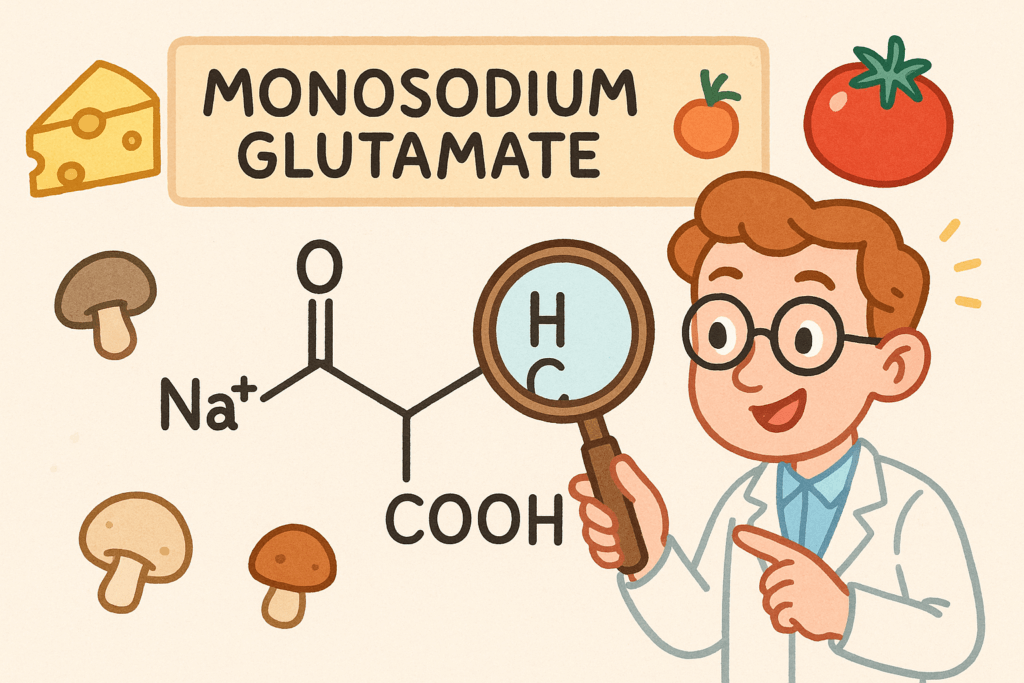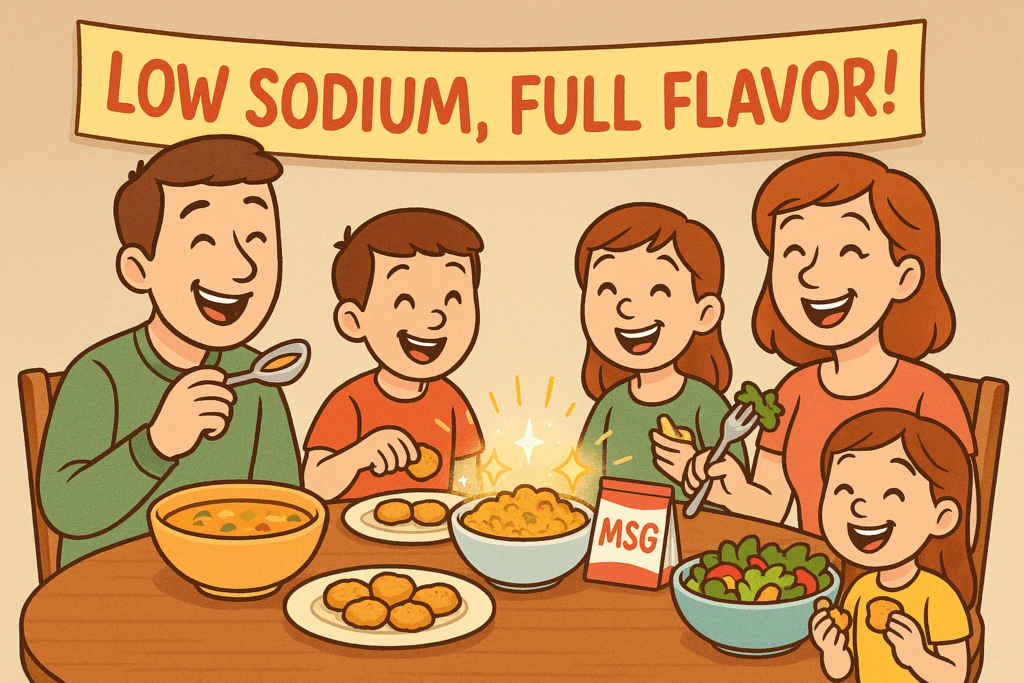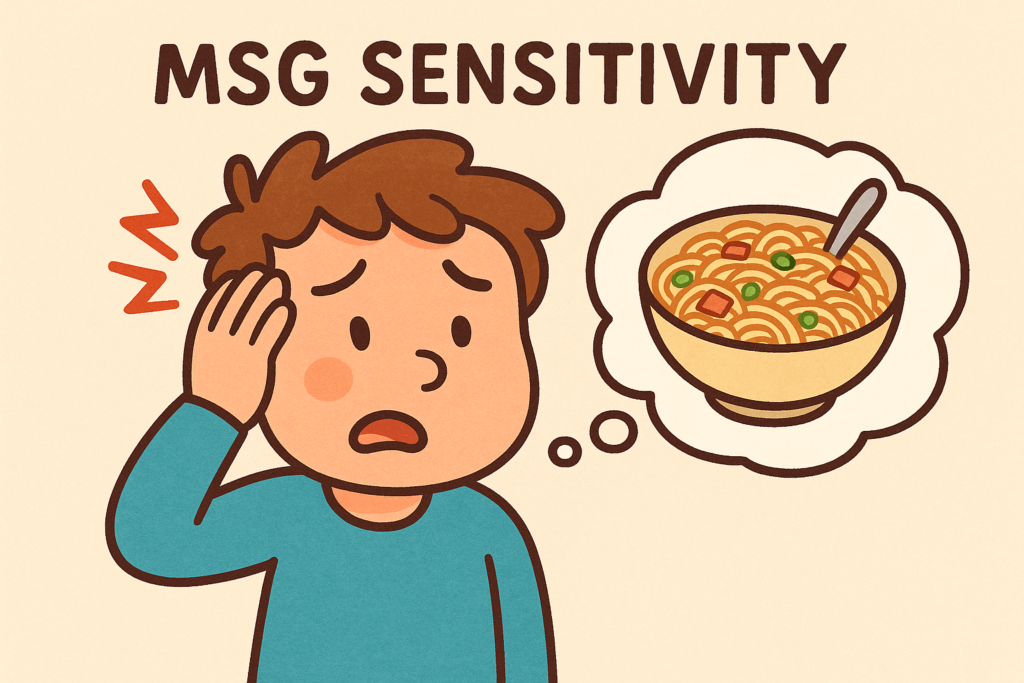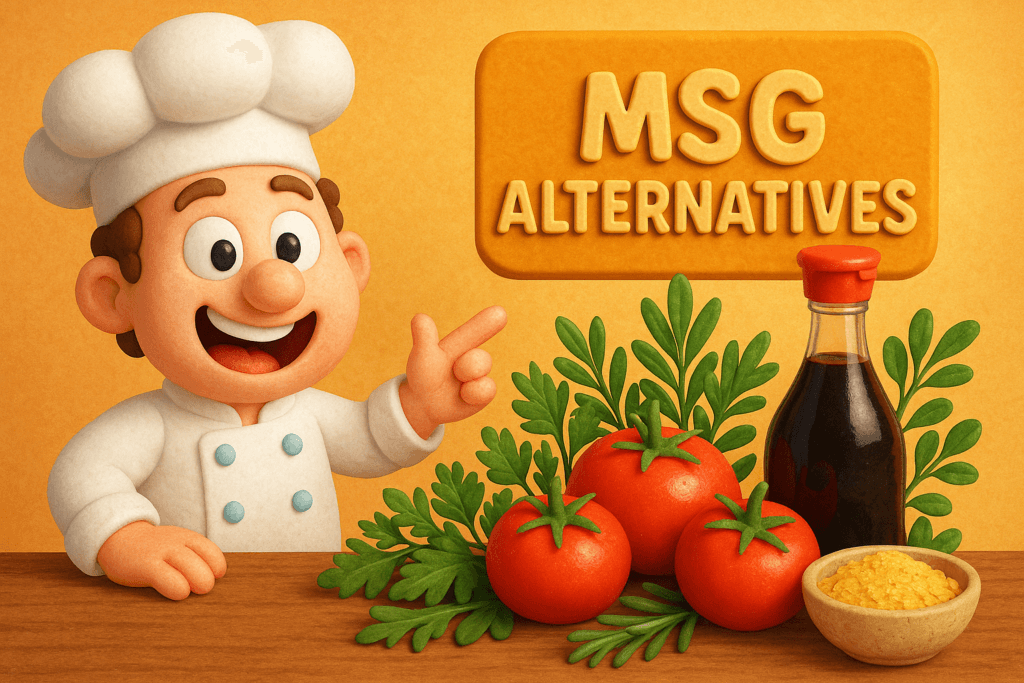Monosodium Glutamate (MSG) has been a subject of intense debate for decades. Widely used as a flavor enhancer in a variety of processed foods, it’s become a staple in many kitchens and food manufacturing plants. While many people love the rich, savory taste it imparts to foods, others are wary of its potential health effects. Is MSG a necessary ingredient to enhance flavors, or does it pose a health threat that we should be cautious of? In this post, we will break down the facts about Monosodium Glutamate, examine its benefits, the potential risks, and determine whether it is a safe addition to our diets.
What is Monosodium Glutamate?
Monosodium Glutamate, commonly known as MSG, is a flavor enhancer made by combining glutamic acid, an amino acid found in protein-containing foods, with sodium. Naturally occurring glutamate is found in foods like cheese, tomatoes, and soy sauce. It’s known for its ability to bring out the umami taste – a savory, rich flavor that enhances the overall taste experience.
MSG is used primarily in processed foods, restaurant meals, and fast food to improve the flavor profile. It is usually added to foods that are savory but lack a strong umami component. This can include canned soups, snack foods like chips and crackers, sauces, gravies, and even seasonings. Its purpose is simple: to enhance the natural taste of food and create a more satisfying, deeper flavor.
The use of MSG in food dates back to the early 1900s when Japanese scientist Kikunae Ikeda first isolated glutamic acid from seaweed and discovered its unique ability to create a savory taste. Over time, MSG was commercialized and began appearing in kitchens and food production lines worldwide.

The Benefits of Monosodium Glutamate
1. Enhancing Flavor Without Extra Sodium
One of the main advantages of MSG is its ability to enhance the flavor of food without adding excessive sodium. Since sodium is often associated with high blood pressure and other health issues when consumed in excess, finding ways to reduce sodium intake is important.
MSG can provide a savory umami taste without increasing sodium levels dramatically. A study published in the American Journal of Clinical Nutrition found that using MSG as a sodium-reducing substitute in food can help people lower their sodium intake without compromising taste. This makes MSG an excellent choice for people looking to reduce their salt consumption without sacrificing flavor.
For example, in recipes that typically require a lot of salt, replacing some of the salt with MSG can help create the same depth of flavor with less sodium overall.
2. Cost-Effective and Widely Available
MSG is inexpensive to produce and easy to find. It’s one of the most cost-effective flavor enhancers available to food manufacturers. This affordability makes it an attractive ingredient for manufacturers who are looking to keep production costs down while still delivering a flavorful product.
MSG is also widely available in both food production and at home. Many commercial kitchens, restaurants, and households use it regularly to bring out deeper, more satisfying flavors in their dishes. From Chinese takeout to soups and snacks, MSG can be found in a wide range of food products.
3. Helping with Low-Sodium Diets
Many individuals need to reduce sodium intake due to health concerns such as high blood pressure, heart disease, or kidney problems. By using MSG in place of traditional salt, people can still enjoy flavorful dishes while keeping their sodium intake in check.
A study published by the Journal of the American College of Nutrition found that MSG could significantly reduce the amount of sodium used in foods without affecting taste, making it a useful option for those on low-sodium diets.
MSG can also help people stick to healthier eating habits, as it makes low-sodium food more enjoyable without adding unnecessary salt.

Potential Health Risks of Monosodium Glutamate
While there are benefits to using MSG, it’s also important to consider the potential health risks. Over the years, some people have raised concerns about its safety, especially after a phenomenon known as “Chinese Restaurant Syndrome” came to light. Let’s look deeper into the potential risks and what science says about them.
1. MSG Sensitivity and “Chinese Restaurant Syndrome”
“Chinese Restaurant Syndrome” is a term that was coined in the 1960s after people reported experiencing symptoms like headaches, sweating, and a feeling of chest tightness after consuming Chinese food, which often contains MSG. This led to widespread concern that MSG might be responsible for these symptoms.
However, after decades of research, the FDA and other health authorities, including the World Health Organization (WHO), have concluded that MSG is safe for the vast majority of people. A study published in the Journal of Nutrition showed that only a very small percentage of people, about 1-2%, might experience mild symptoms like headaches when consuming large amounts of MSG.
These reactions are considered rare and are not consistent across the general population. The FDA continues to classify MSG as “generally recognized as safe” (GRAS), meaning it is considered safe when consumed in normal amounts.

2. Effects on Neurotransmitters
Some studies, particularly those involving animal models, have raised concerns about the potential neurotoxic effects of large amounts of MSG. In these studies, high doses of MSG administered to animals appeared to cause brain damage, particularly to neurons in the hypothalamus, a critical region involved in controlling hunger and other functions.
However, the doses of MSG used in these studies were far higher than what a person would typically consume in a normal diet. In humans, no consistent evidence has been found linking normal MSG consumption to neurological problems.
The overwhelming consensus from health authorities is that there is no evidence to support that MSG poses any threat to human brain health when consumed at typical dietary levels.
3. Link to Obesity and Metabolic Issues
Some animal studies have raised concerns about the relationship between MSG and obesity. Research has shown that high doses of MSG in rats can lead to weight gain and other metabolic issues. However, these studies often use doses far greater than the average human would consume.
Human studies have yet to establish a clear link between MSG and obesity. However, there are some indications that MSG could stimulate appetite in some people, leading them to overeat. More research is needed in this area to determine whether MSG has any direct effects on metabolism or body weight.
Lycopene: The Antioxidant Powerhouse for Heart, Skin, and Prostate Health
Is MSG Safe to Consume?
For most people, MSG is perfectly safe to consume in moderation. The FDA, WHO, and other global health organizations have reviewed extensive research on MSG and have confirmed that it is not harmful when consumed in typical amounts.
In fact, MSG has been used in food for over a century without any conclusive evidence linking it to serious health issues. However, it’s essential to remember that any ingredient can have an adverse effect on certain individuals. If you suspect that you are sensitive to MSG, it’s best to avoid it and consult a healthcare professional.
It’s also important to be mindful of the overall nutritional quality of the food you’re consuming. Many processed foods containing MSG are also high in unhealthy fats, sugars, and sodium, which can contribute to long-term health problems like heart disease, diabetes, and obesity.
Monosodium Glutamate Alternatives
For those looking to avoid MSG, there are plenty of natural alternatives to enhance flavor without compromising health. Some common alternatives include:

- Herbs and Spices: Basil, oregano, thyme, rosemary, and garlic are all great alternatives that can add depth and flavor to dishes.
- Nutritional Yeast: This is a vegan-friendly alternative that provides a cheesy, umami flavor without MSG.
- Soy Sauce or Miso: Both of these fermented products contain natural glutamates and can add a savory taste to food.
- Tomato Paste: Tomatoes naturally contain glutamates, and using concentrated tomato paste can provide an umami boost.
These natural alternatives can help enhance the flavors in your cooking without using artificial additives like MSG.
FAQs About Monosodium Glutamate
1. What is Monosodium Glutamate (MSG)?
Monosodium Glutamate is a food additive used to enhance the savory, umami flavor in foods. It is made by combining glutamic acid with sodium.
2. Is MSG harmful to health?
For most people, MSG is not harmful. However, some individuals may experience mild symptoms like headaches, sweating, or chest tightness, especially when consumed in large amounts.
3. Can MSG cause headaches?
Some individuals report headaches after consuming MSG, but scientific studies have not found a consistent link between MSG and headaches in the general population.
4. Is MSG linked to obesity?
There is no clear evidence linking MSG to obesity in humans. While some animal studies suggest a connection, more research is needed to understand any potential relationship.
5. How can I avoid MSG in my diet?
Check food labels for MSG and opt for fresh, whole foods. You can also use natural flavoring alternatives like herbs, soy sauce, or nutritional yeast to enhance the taste of your dishes.
Disclaimer
The information provided in this blog post is for general informational purposes only. It is not intended as medical advice, diagnosis, or treatment. If you have specific concerns about your health or the consumption of Monosodium Glutamate (MSG), we recommend consulting with a healthcare professional. Always seek the advice of your physician or a qualified healthcare provider before making any dietary changes or if you have any concerns regarding food ingredients. The effectiveness and safety of food additives can vary depending on individual health conditions and sensitivities.
